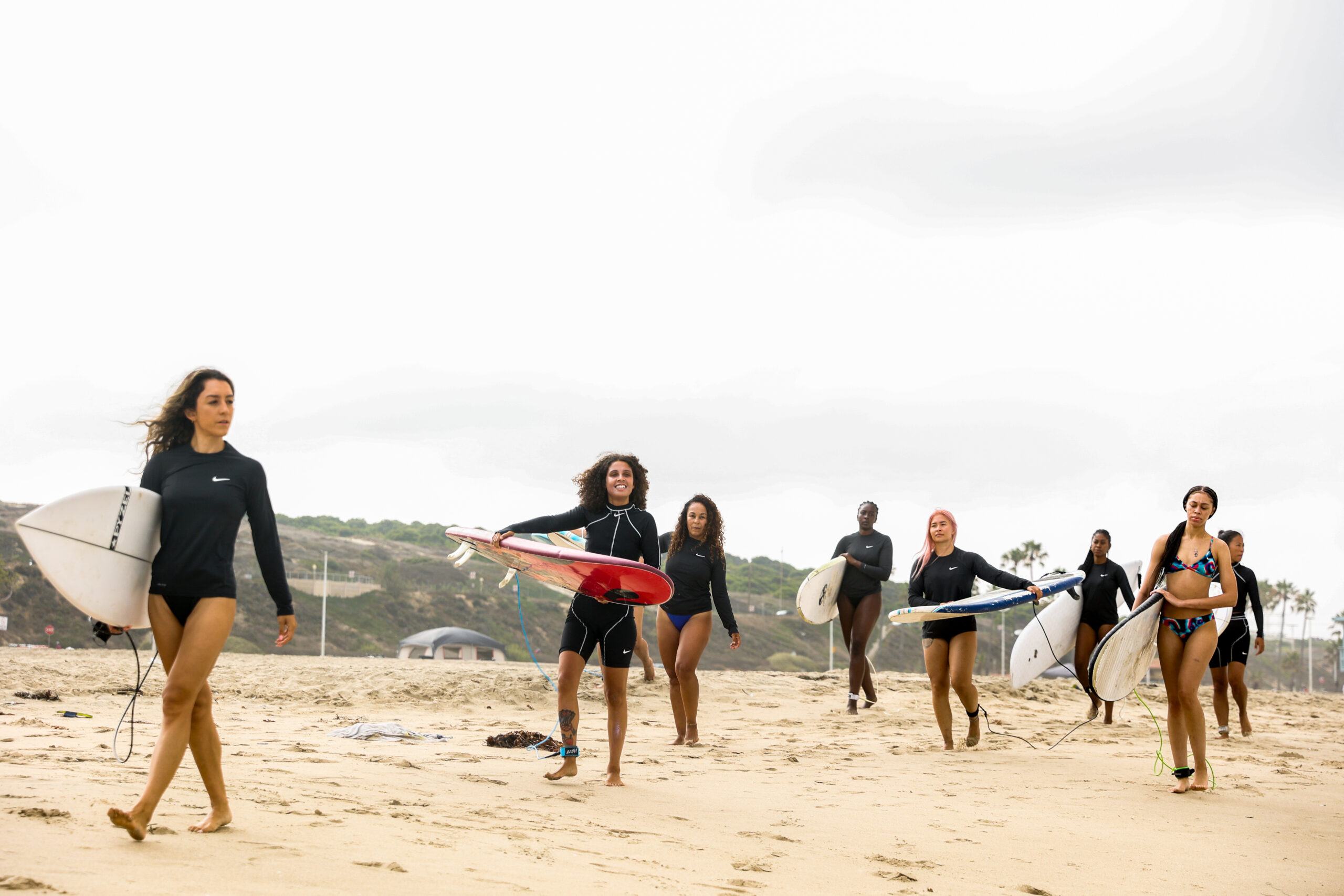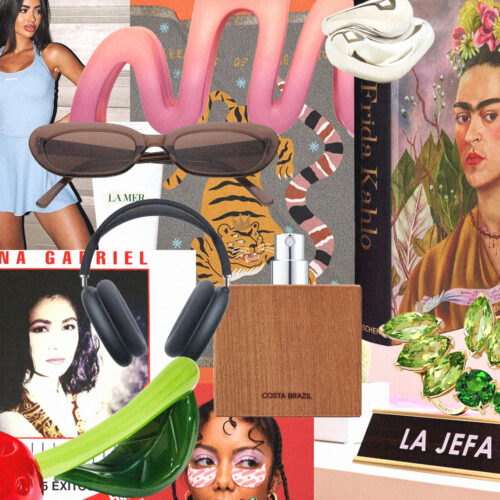Raised in Cleveland, Ohio, Jessa Williams always participated in sports, but surfing wasn’t on her radar in the midwestern city. Once she moved to L.A. for work and her son got hooked on the surfing during the pandemic, after some convincing, she finally gave it a try and eventually gained the confidence to paddle out on her own. But Williams had an experience out on the water that would’ve turned many other women of color away from surfing completely –– a white man threatened her to “get the f*ck out of the ocean.”
Rather than let the negative interaction sour surfing for her forever, Williams channeled her rage into something positive and founded Intrsxtn, a group that supports other surfing women of color.
“I want them to know that all of the beauty of connecting with the ocean, all of the healing that it can provide, that it is for us, too,” Williams told LATINA. “We can give ourselves permission to be there, to explore a place or a new interest, to try new things. We work so hard, especially as women of color, so we deserve time to disconnect and really just be present in the moment.”
A report by the Outdoor Industry Association found that white Americans made up seventy-two percent of overall outdoor recreation participation in 2020. This stark gap tracks, considering that communities of color are nearly three times more likely than white communities to live in areas that have no immediate access to nature including parks, paths, and green spaces.
Systemic and financial barriers often exclude people of color from participating in outdoor activities, but leaders like Williams across the country are working to level the playing field.
Evelynn Escobar launched Hike Clerb to help make the outdoors more inclusive after noticing how few people of color visited national parks. Although Escobar facilitates nature experiences for Black and brown communities on the East and West coasts, she hopes the benefits of her initiatives reach further than the outdoor scene. “Hike Clerb has been a catalyst for self-discovery beyond just the hiking community and that is what I love about our impact. It transcends hiking and outdoor recreation,” Escobar told LATINA. “It’s a vessel for self-expression, community, and healing.”
When people of color lack the opportunity to connect with nature and stay active, they don’t only miss out on entertainment, their health is at risk too. Research has shown that getting outdoors has numerous benefits, including advancing vision health, reducing the risk of cardiovascular disease, and decreasing stress levels. For groups disproportionately impacted by poor health and disease, getting to a park for a hike or the beach for a swim can be lifesaving.
Learn about Intrsxtn, Hike Clerb, and more inclusive groups that are making outdoor activities and exploration more accessible across the US below.
Intrsxtn Surf
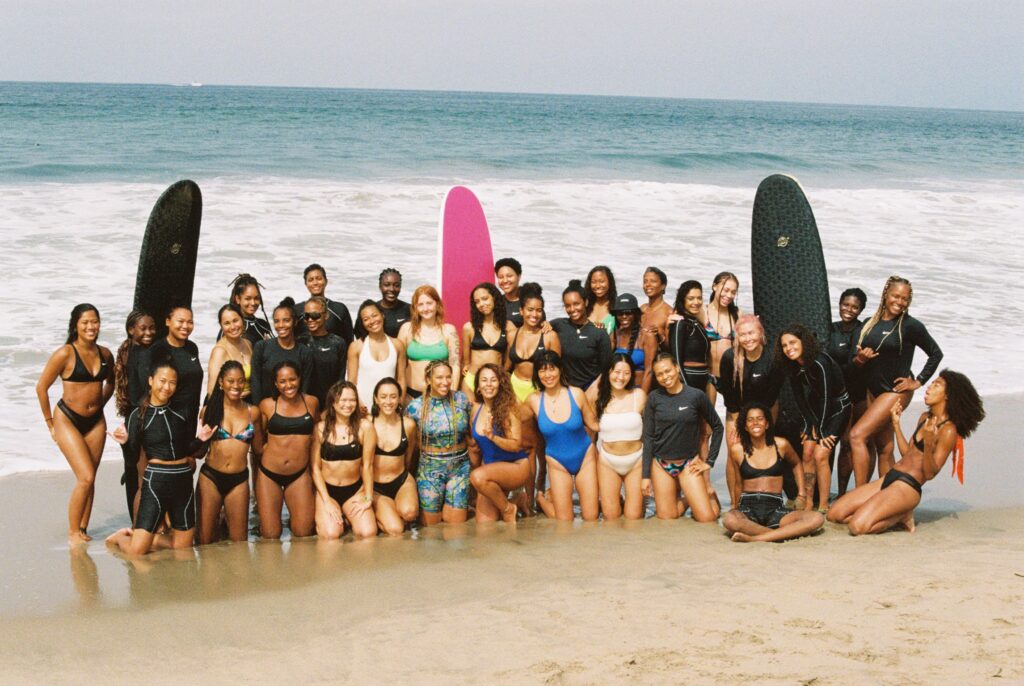
image by Brandon Hicks.
Founded in Los Angeles in June 2021, Intrsxtn helps create a safe space for Black and women of color to learn how to surf and be in community with other surfers who look like them. The group hosts weekly meet-ups and organizes lessons for beginners across Los Angeles. This past summer, Intrsxtn held its first surf treat in Sayulita, Nayarit, Mexico, and hopes to host others in the future with the community to promote rest and a place to recharge.
Hike Clerb
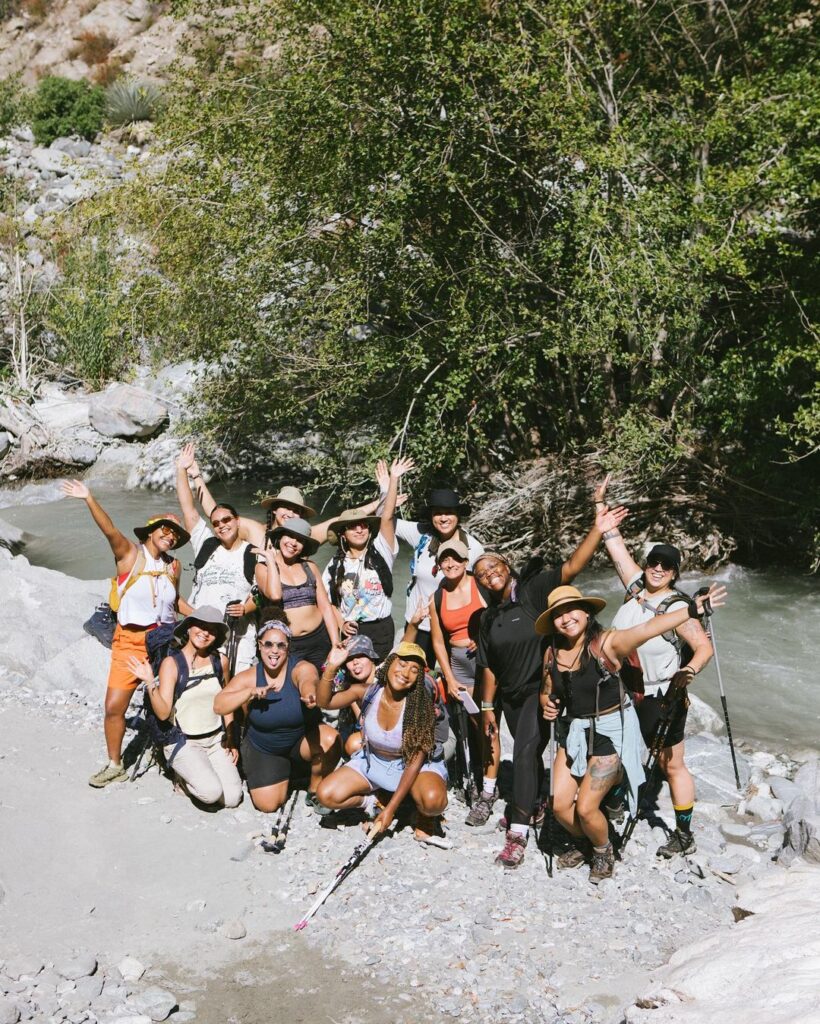
Courtesy of Hike Clerb.
Evelynn Escobar founded Hike Clerb in Los Angeles in 2017 to address the lack of representation and participation of people of color in the outdoors. The collective helps equip Black, Indigenous, women of color with the tools, education, resources, and experiences they need to heal in nature in Los Angeles and beyond. Hike Clerb recently hosted a field day at New York City’s Govenor’s Island, took a group sea fishing, and held a retreat in the Palm Springs desert.
Latino Outdoors
José González launched Latino Outdoors in 2013 in California to connect Latinx communitites with the outdoors. The nonprofit organization is creating a national community of outdoor leaders while embracing culture and family as part of the outdoor narrative and prioritizing history, heritage, and leadership. Last year, Latino Outdoors had a network of over 200 volunteers, over 100 leaders nationally, over 1,500 participants, and hosted over 100 outings including camping, hiking, biking, and kayaking events.
Brown Girls Climb
Founded by Bethany ‘Bety’ Lebewitz in 2016 in California’s Bay Area, Brown Girls Climb aims to promote mentorship, access, leadership, and representation in the outdoors and climbing for people of color. Lebewitz started the national nonprofit to support women but the organization has broadened its focus to include all climbers while centering people most impacted by colonization and industrialization of land. Brown Girls Climb hosts meet-ups and workshops and offers discounts on gym memberships and climbing gear.
Outdoor Afro
What started as a blog for Rue Mapp to muse on her love of nature, grew into the Oakland nonprofit organization Outdoor Afro in 2009. Outdoor Afro celebrates and inspires Black connections and leadership in nature and connects Black people with land, water, and wildlife through outdoor education, recreation, and conservation. The network has chapters in 60 cities across the country and a participation network of over 60,000 people with over 100 volunteers. Outdoor Afro’s year-round activities range from fishing, hiking, biking, kayaking, gardening, skiing, and more.
Black Girls Do Bike
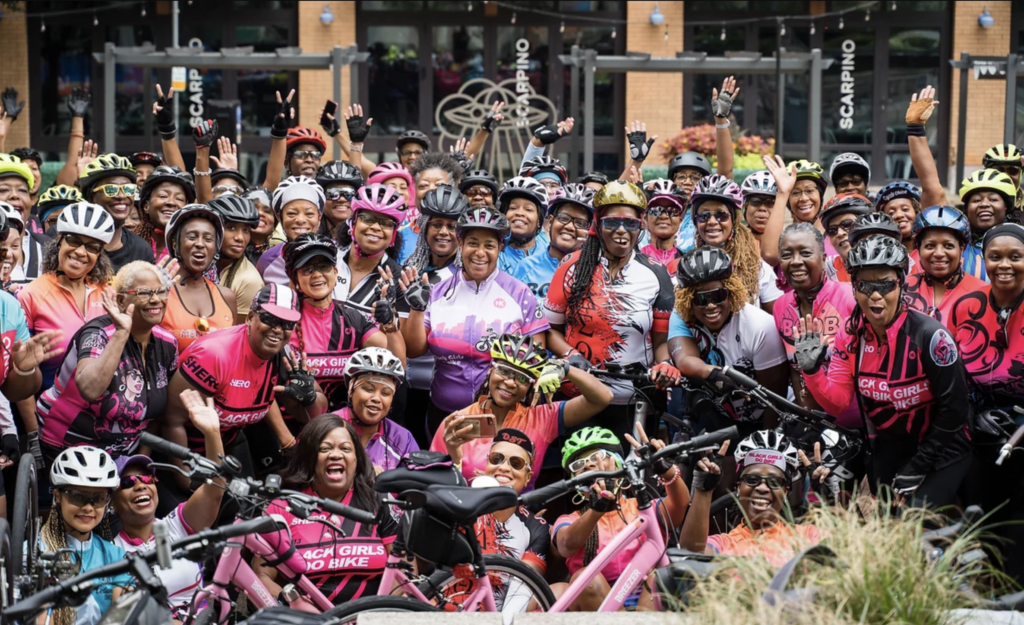
BGDB 2022 National Meetup Pittsburgh Ride. Photographer: Monica Garrison
Monica Garrison founded Black Girls Do Bike in 2013 to support women of color who share a passion for cycling. What initially started a Facebook page for women who love to bike, grew into a nonprofit organization for cyclists to support and advise one another, organize rides, and promote skill-sharing. With a network of and a network of over 180 leaders, Black Girls Do Bike promotes bike advocacy, education, volunteerism, and safety in over a hundred chapters globally.
Latinos Run
After not being able to find a running group for Latinos, Maria Solis Belizaire decided to take action and start her own in New York City in 2016 to honor her late mother Miriam Calderon Solis. The international organization now has a global network of over 25,000 runners to help promote running to improve physical and mental health in the Latinx community, which has historically been ignored in the health and fitness industry. Latinos Run has a global audience servicing over 25,000 runners. Latino Run’s sister group Latinas Run focuses on supporting Latina Women runners.
National Brotherhood of Skiers
Ben Finley and Art Clay founded The National Brotherhood of Skiers (NBS) in 1973 during a time when African Americans were rarely seen on ski slopes. The friends wanted to create an organization to help get a black skier on the US Ski Team. Now NBS’s 57 clubs and 3,500 members nationally host events and raise funds to increase Black participation in winter sports while developing and supporting athletes of color to win international competitions.
Leah Rodriguez is a writer living in New York City covering food, culture and women’s rights.
